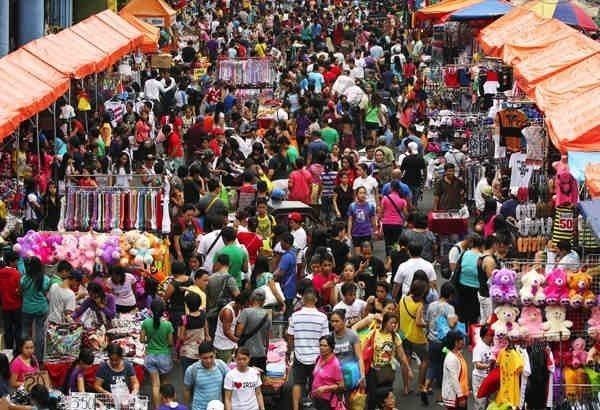Philippines: BSP says ‘monitoring situation’ after March inflation quickens to fresh 3-year high
MANILA, Philippines (Updated: 2:27 p.m.) — The Bangko Sentral ng Pilipinas said on Thursday it will keep a close watch on overall increase in prices of key consumer items after inflation surged to a fresh peak in March.
Headline inflation, based on the 2012 consumer price index series, accelerated to 4.3 percent last month, quicker than the 3.8 percent pace clocked in February and the 3.1 percent a year ago.
The March reading, despite settling within the BSP’s 3.8-4.6 percent forecast for the month, was the fastest clip since August 2014 when inflation was at 4.2 percent.
Inflation in the first quarter of 2018 averaged 3.8 percent, near the top end of the government’s 2-4 percent target band.
“There’s a pick-up in inflation that we recognize. Markets are already factoring this… We are closely monitoring the situation,” BSP Governor Nestor Espenilla was quoted as saying in a tweet report by BusinessWorld, adding that the central bank is now tasked to “carefully evaluate the appropriateness of a measured policy response.”
Broken down, data show prices of heavy-weighted commodity groups picked up during the month, with prices of food and non-alcoholic beverages rising by 5.9 percent and prices of “sin” products jumping by 18.6 percent.
Sought for comment, University of Asia and the Pacific Senior Economist Cid Terosa attributed the higher monthly inflation to the peso’s slump and the Duterte administration’s Tax Reform for Acceleration and Inclusion law, which took effect last January 1.
“Obviously it was driven by the upward pressure on prices exerted by the TRAIN law and the rise in prices of utilities,” Terosa said.
“The weakening of the peso has influenced this trend as well but to a lesser degree,” he added.
Medium-term view
In a separate statement, Espenilla said the BSP continues to expect inflation to average 3.9 percent this year, before easing to 3 percent in 2019.
“The elevated path of inflation in 2018 along with rising inflation expectations will be continually assessed to guard against potential second-round effects from developing and inflation becoming broader based,” he said.
“The BSP will remain vigilant in evaluating price conditions and is ready to take appropriate measures as necessary to ensure that inflation over policy horizon remains consistent with the target,” he added.
As expected, the central bank on March 22, left key rates unchanged, dashing the prospect of an interest rate hike to anchor inflation expectations and keep local yields competitive.
The BSP had repeatedly sought to temper calls for adjustments in benchmark interest rate, saying rising consumer prices stoked by the TRAIN Act—which slapped higher excise levies on fuel and cigarettes, among others—is only “temporary.”
But Espenilla earlier acknowledged that inflation expectations “have started to rise and will therefore need to be monitored closely in the coming months.”
The BSP chief likewise said the economy is sturdy enough to “absorb some policy tightening if warranted”—a clear signal that the central bank’s door is open for adjustments in benchmark interest rate.
For Union Bank of the Philippines chief economist Ruben Carlo Asuncion, the central bank is unlikely to lift policy rates any time soon.
“I maintain my forecast of no interest rates increase this 2018 based on the transitory nature of the current inflationary pressures and the BSP’s obvious dovish stance,” Asuncion said in an interview.
The BSP will hold its third rate-setting meeting for this year on May 10.
Source: https://www.philstar.com/business/2018/04/05/1803073/bsp-says-monitoring-situation-after-march-inflation-quickens-fresh-3-year-high#deokJIYauuWmz1Qh.99


 English
English




